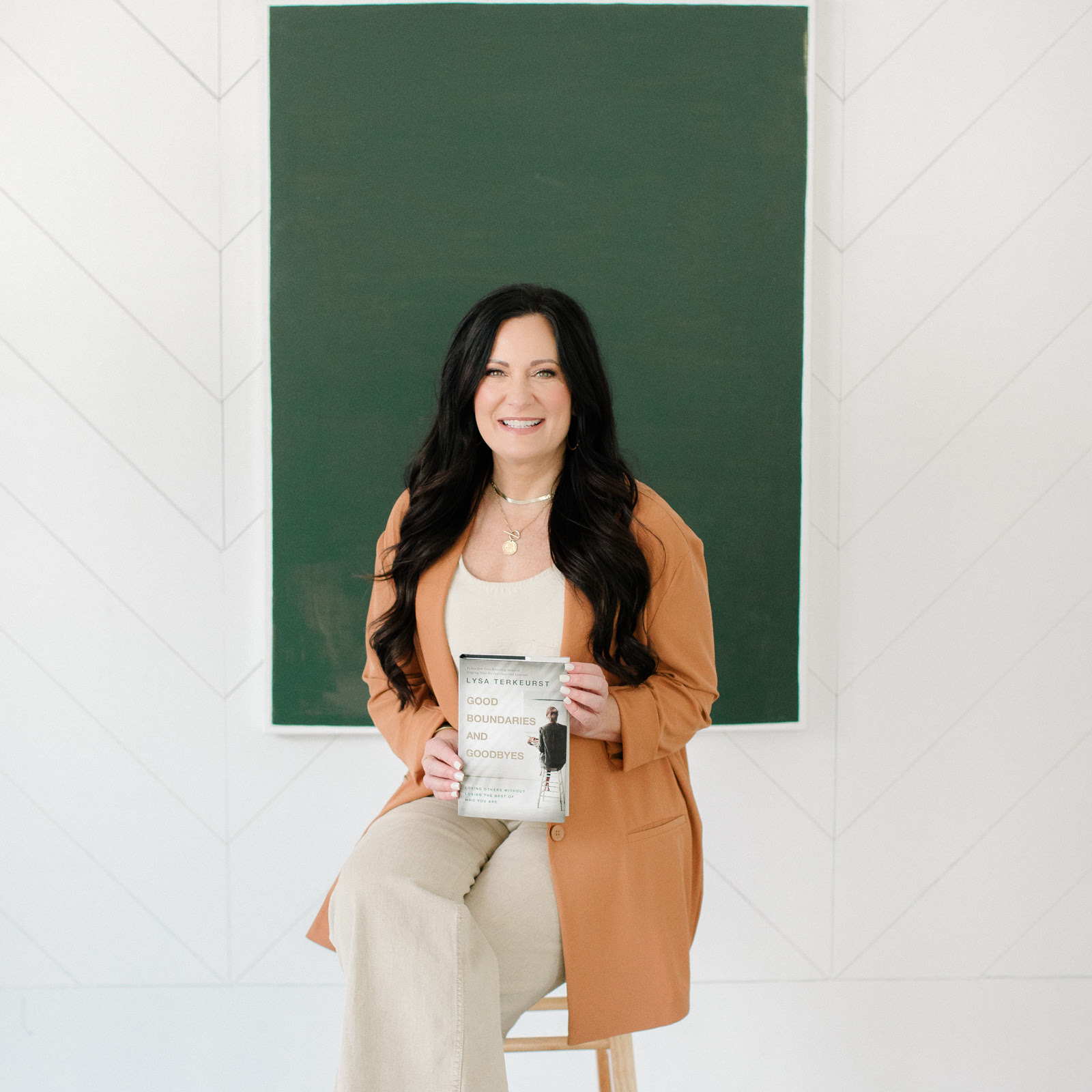 November 3, 2022
November 3, 2022
It’s Not Unchristian To Require People To Treat You in Healthy Ways
LYSA TERKEURST
Lee en español
“Greater love has no one than this: to lay down one’s life for one’s friends.” John 15:13 (NIV) I’ve been studying the life of Jesus a lot. How He reacted when people hurt Him deeply. How He handled the whiplash of being loved one minute and tossed aside the next. How He knew Judas was going to betray Him, and He washed his feet anyhow. I want to be like Jesus. I want to hold fast to His Word. But if I’m honest, it can feel so challenging to apply biblical principles when I’m experiencing relational hurt at the same time. Especially when commonly used Bible verses get weaponized against me or appear to be unclear with their instructions. I’ve been bumping up against this as I’ve been learning about establishing boundaries in some of my relationships. And here’s what I’ve begun to realize: Just like our bank accounts can get overdrawn, so can our emotions. Just like spending that gets out of control can bankrupt a person’s finances, expending too much emotionally can bankrupt a person’s well-being. We have emotional limitations. In the past, I think I’ve tried to work around this. I’ve thought things like …
There are good intentions in every single one of those statements above. And on the surface, many of those mindsets have a noble sense of self-sacrifice and Christian character. They even hint so closely at some well-known Bible verses that they seem like the right way to react. However, there’s more context and truth we must consider here. Let’s take a look at John 15:13, for example: “Greater love has no one than this: to lay down one’s life for one’s friends.” You see, in the past, I thought this verse meant that the greatest act of love I could show is to lay down my own life for the good of others even when it’s to my own detriment. Yes, Jesus literally laid down His one glorious life one time, and it was for a high and holy purpose. But Jesus didn’t lay down His life to enable evil, perpetuate unholy or irresponsible behaviors, or try to keep others happy. When Jesus made this statement in John 15, He was speaking within a context when friendship in the ancient world was truly valued and sought after. This type of friendship involves the sharing of deep personal trust as well as possessions. Love expressed and experienced between friends is a beautiful thing and shouldn’t be dismissed or overlooked. In our daily lives, we should want to share and, within reason, give to our loved ones and friends. But here’s the caution: We can be a resource for others when needed, but we should not become the source of what sustains them. The instruction here isn’t so much about our willingness to literally lose our lives or sacrifice our needs to the point of self-detriment. Rather, Jesus is reminding us to have a willing spirit to show and extend a type of love that is honorable and willing to be self-sacrificial when necessary. And from that place, I’ve come to understand having boundaries in our relationships isn’t selfish. It’s actually exercising self-awareness by realizing only God is limitless in His capacity. We, as humans, are limited. Friend, if you have struggled with wondering if setting boundaries is biblical, please know I’ve been in your shoes. But here’s what I want you to know:
We have to know how to spot dysfunction, what to do about it, and when to recognize it’s no longer reasonable or safe to stay in some relationships. But we can do all of this with honor and kindness, learning how to love others well without losing the best of who we are. And isn’t that what we really want? After all, God’s ultimate assignment is for us to love Him and love others. And this is exactly what Jesus taught and modeled. John 13:34 says, “A new command I give you: Love one another. As I have loved you, so you must love one another” (NIV). Love must be honest. Love must be safe. Love must seek each person’s highest good. And ultimately, love must honor God for us to experience the fullness and the freedom of the sweetest connection between humans. Heavenly Father, thank You for filling Your Word with truths about how and why to set biblical boundaries. Please reveal Yourself to me as I learn, consider and process some potentially necessary boundaries I may need to implement in my life. I pray that You would continue to work in me and through me so I can be the healthiest, most whole, yielded-to-You version of myself. In Jesus’ Name, Amen. OUR FAVORITE THINGSGain the biblical wisdom and discernment to know what to do when relationships get incredibly challenging … with the help of Lysa TerKeurst’s new book, Good Boundaries and Goodbyes. For only FOUR more days, you can preorder the book and immediately receive preorder gifts that are only available until November 7. These gifts include early access to the first three chapters of the book and audiobook, a never-released Therapy & Theology podcast episode on toxic relationship dynamics, a digital copy of The Good Boundaries and Goodbyes Reflection Journal, and 25% off your general admission ticket to an event on The Good Boundaries and Goodbyes Book Tour with Lysa TerKeurst. Preorder now. P.S. Make plans to tune in to a free, behind-the-scenes conversation with Lysa TerKeurst on November 8 at 11 a.m. ET to celebrate the release of her new book! You can access this on the Proverbs 31 Ministries Facebook page here.  ENGAGEFind real-life encouragement when you connect with Lysa TerKeurst here on Instagram. FOR DEEPER STUDYRomans 12:9, “Love must be sincere. Hate what is evil; cling to what is good.” (NIV) How might you look at this verse differently in light of what you’ve learned today? Share with us in the comments! © 2022 by Lysa TerKeurst. All rights reserved. |
Proverbs 31 Ministries
P.O. Box 3189
Matthews, NC 28106
www.Proverbs31.org


